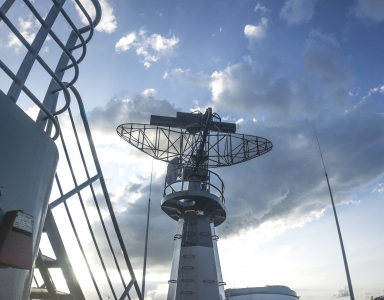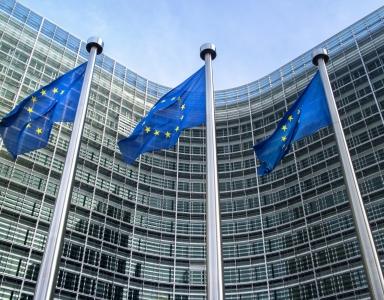European Defence Fund 2022: EU funding for collaborative defence R&D projects
On Wednesday, May 25, 2022, the European Commission adopted the 2022 European Defence Fund (EDF) work programme, totaling € 924 million in EU funding through 8 calls for proposals dedicated to collaborative defence R&D projects across 33 topics. The work programme targets relevant defence technologies and capabilities in line with the EU capability priorities commonly agreed by Member States and further elaborated in the Strategic Compass. The programme also ensures continuity of funding for some important projects initiated under the two EDF precursor programmes. Learn more about the EDF Work Programme of 2022.
The second part of this article can be found here.
The 2022 EDF categories
Get funding for projects under the following categories of actions:
- Defence medical response, Chemical Biological Radiological Nuclear (CBRN), biotech and human factors;
- Information superiority;
- Advanced passive and active sensors;
- Cyber;
- Space;
- Digital transformation;
- Energy resilience and environmental transition;
- Materials and components;
- Air combat;
- Ground combat;
- Force protection and mobility;
- Naval combat;
- Underwater warfare;
- Simulation and training;
- Disruptive technologies.
The work programme will also co-finance projects not related to categories of actions, allowing eligible entities to develop their own thematic project ideas within set boundaries through the following calls:
- EDF-2022-LS-RA-SMERO-NT: Non-thematic research actions by SMEs and research organisations;
- EDF-2022-LS-DA-SME-NT: Non-thematic development actions by SMEs.
- EDF-2022-CSA-NFP: Call for proposals for coordination and support action to the National Focal Points (NFP) network.
Contact us for more information
Or call us directly: 088 495 20 00
The funding rates
Maximum funding rates that will apply to eligible costs of funded actions are determined for each activity covered by the project and will be composed of:
- a baseline funding rate;
- an increase in the baseline funding rate (‘bonus’) for development projects where conditions are met.
The baseline funding rates are up to 100% of eligible costs for research projects and up to 90% of eligible costs for development projects. The overall increase in the baseline-funding rate following the application of the increase of funding rates is subject to maximum overall funding rates.
Bonuses
An increase of funding rates through one or more bonuses for development actions is possible provided that respective conditions are met:
- PESCO bonus (10% increase of funding rate): projects developed in the context of the permanent structured cooperation (PESCO);
- SME bonus (up to a maximum of 5% increase of funding rate + twice the proportion of eligible costs allocated to cross-border SMEs established in the EU): projects developed in which a proportion of eligible costs allocated to SMEs established in the EU is equal to or more than 10% for the activity concerned;
- Mid-cap bonus (10% increase in funding rate): proportion of eligible costs allocated to Mid-caps established in the EU is equal to or more than 15% for the activity concerned.
Defence ministries of (EU) countries may provide co-financing when additional conditions are met.
Consortium requirements
European cooperation between project partners is particularly important. In general, applicants must set up a consortium consisting of at least two eligible entities from at least two different EU Member States or associated countries.
Eligibility
In order to be eligible, the applicants (beneficiaries and affiliated entities) must:
- be legal entities (public or private bodies);
- be established in one of the eligible countries, meaning:
- EU Member States (including overseas countries and territories (OCTs))
- non-EU countries (listed EEA countries).
- have their executive management structure established in eligible countries;
- must not be subject to control by a non-associated third country or non-associated third-country entity (unless they can provide guarantees approved by the Member State or EDF associated country where they are established).
Associated partners which are not established in one of the eligible countries (or which are subject to control by a non-associated third country or non-associated third-country entity) may however participate exceptionally if certain conditions are, subject to agreement by the granting authority and without any funding under the grant.
More information or questions about the EDF 2022 work programme?
Continue reading here for additional information on the EDF. Do you still have questions? Our specialists would be pleased to answer all your questions! Feel free to contact us via the form below or call us directly to immediately discuss your project idea.
In need of advice? Contact us
Or call us directly: 088 495 20 00



